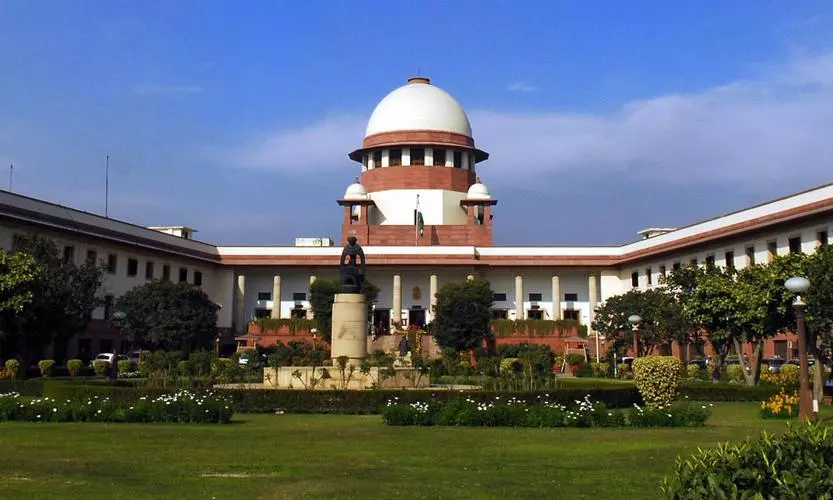
Temple or mosque, all religious structures encroaching on public property must go: SC
Underlining India’s secular status, SC says directives on bulldozer action and anti-encroachment drives will apply uniformly to all citizens irrespective of religion

In a landmark ruling, the Supreme Court on Tuesday (October 1) said public safety takes precedence over religious structures encroaching on roads, water bodies, or railway tracks.
Underlining India’s secular status, the apex court said its directives on bulldozer action and anti-encroachment drives will apply uniformly to all citizens irrespective of their religion.
Justices BR Gavai and KV Viswanathan made the observations after hearing petitions challenging bulldozer action against people accused of crimes.
Bulldozer action
The widely-condemned trend, reported from several states, is often colloquially referred to as “bulldozer justice”. Authorities claim that only illegal structures have been demolished.
Solicitor General Tushar Mehta, who appeared for the BJP-ruled Uttar Pradesh, Gujarat, and Madhya Pradesh, was asked if being accused in a criminal case can be a ground for facing bulldozer action.
“No, absolutely not, even for heinous crimes like rape or terrorism,” he replied.
Court insists on rules
He went on that even while dealing with municipal issues, notices had to be issued.
The judges said there were different laws for municipal corporations and panchayats. “There should also be an online portal so people are aware, once you digitise it there is a record.”
Mehta said he was worried that the court was issuing directions based on a few instances, alleging that one community was being targeted in the use of bulldozers
Court underlines equality before law
That is when the Supreme Court made the observation.
“We are a secular country and our directions will be for all, irrespective of religion or community. Of course, for encroachment we have said... if it is on a public road, footpath, water body or railway line area, it has to go, public safety is paramount,” the Bench said.
“If there is any religious structure in the middle of the road, be it gurudwara or dargah or temple, it cannot obstruct public,” it said.
No internationalisation, says Mehta
Justice Gavai said: “For unauthorised construction, there has to be one law, it is not dependent on religion or faith or beliefs.”
When Senior Advocate Vrinda Grover, appearing for the UN Rapporteur, made arguments, Mehta remarked: “We don’t want this to internationalise. Our Constitutional courts are powerful enough and our government is assisting… We don’t need an international agency to come in.”
Another Senior Advocate, CU Singh, said bulldozer action should not be used as a crime-fighting measure.
Crime per se can’t justify razing
Mehta said bulldozer action against minorities will be “far and few between”. The bench immediately intervened: “It is not some or two persons, the figure is 4.45 lakh.”
The court reiterated that being an accused in a crime cannot be the basis for the demolition of property and that demolition can only take place if civic rules are violated.

